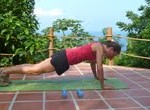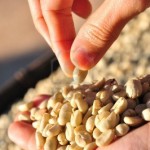
A recent study that monitored 14 trained male cyclists under age 45 has found that bananas are equally beneficial to sports performance as the popular sports drink Gatorade. The study, aptly titled ‘Bananas and Exercise Metabolism’, was performed to research how Gatorade, which is the drink of choice of most athletes, stacks up against more natural fruit alternatives in giving athletes that extra metabolic kick.
The study was broken down into cyclists that consumed Gatorade before, during, and after a 75 kilometer time trial and those eating bananas instead. All of the cyclists had an average diet with a moderate amount of carbohydrates and no supplements. Although the characteristics of bananas and Gatorade are so different, both produced very similar results in athletes’ blood glucose levels, inflammation, oxidative stress, and metabolic functions.
Researchers particularly focused on athlete liver function and how their bodies utilized the carbohydrates and various acids as fuel. Ultimately, they found that there was no difference between the help Gatorade gives you versus the banana. At the same time, researchers did find that bananas were a better source of antioxidants and dopamine, but neither had any effect on the athletic functions.
While bananas are obviously more cost efficient than Gatorade, one would have to consume bananas at the same rate as they would drink Gatorade. That means eating 6-7 bananas over a two to three hour period. Though this has no adverse effects, six bananas take up a lot more space than Gatorade and can cause bloating. That’s also because of the large amount of fiber that your body receives from the fruit. Researchers expect a big rise in banana-peel based supplements as a great way to help athletes’ endurance and metabolic functions, especially in a high-energy event.










